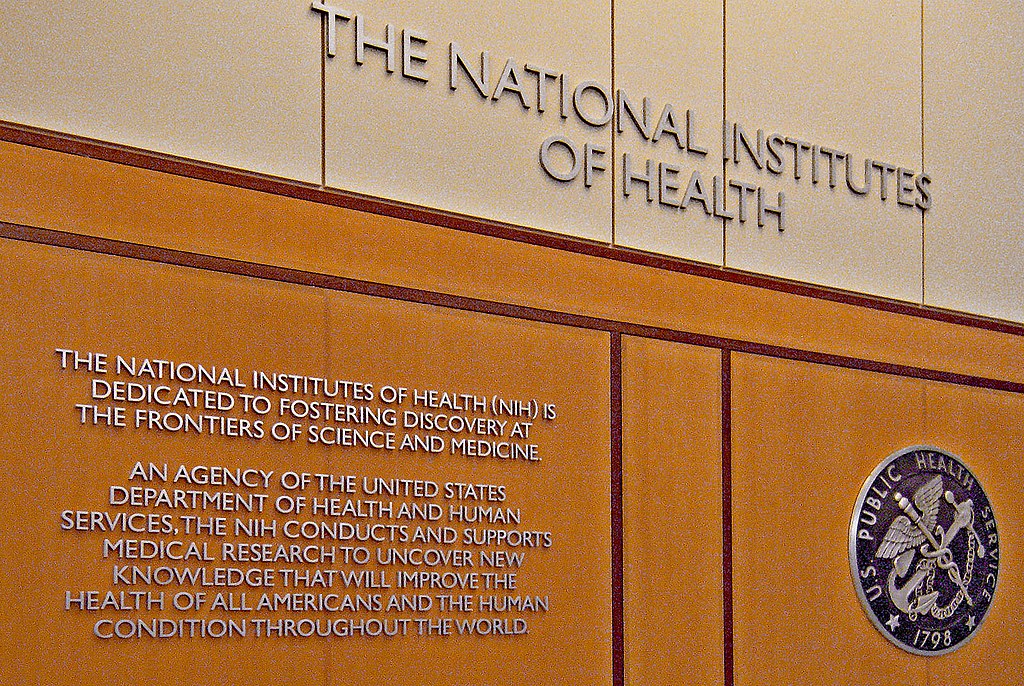The National Institutes of Health says it will devote more resources to eliminating health care disparities among people with disabilities.
As part of the plan, the agency announced it would formally designate people with disabilities as a health disparities population, a policy shift that came after the NIH initially said it had no plans to do so and drew backlash from advocates.
BonnieLynn Swenor, director of the Johns Hopkins University Center for Disability and Health Research, joined the Standard to share more details.
This transcript has been lightly edited for clarity.
Texas Standard: First, can you explain what it means for a population to be designated as a health disparity population? What is the significance of that?
Bonnielynn Swener: So that opens up the opportunity for further research and funding to address health inequities and health disparities for all of these people who receive this designation. Historically, people with disabilities haven’t had access to a lot of research funding to address the known health inequities that the disability community faces. This designation changes that.
Can you elaborate a bit more on those inequalities?
Yes. There is a mountain of data showing that people with disabilities face greater barriers to accessing health care and are less likely to receive preventive screenings for cancer and other conditions than people without disabilities. Yet, despite this evidence, there is a lack of funding and support to develop strategies to address these barriers.
» Texas Standard Special Report: The State of Disability in Texas
Now, given the data, why did NIH initially say they didn’t want to make this designation? Was there any explanation?
In a public meeting, the committee that gave this advice was hesitant because they were unsure how to define the disability community. They also suggested that they felt that everyone in the disability community had to face health disparities for the designation to apply. As you pointed out, advocacy groups and the disability community opposed this. And the designation was given.
Do you believe they changed their mind under public pressure?
Well, it’s hard to know the exact dynamics from the outside, but in fact the recommendation to deny the designation was strictly advisory in nature. It was up to the director of the National Institute on Minority Health and Health Disparities, whose advisory committee reviewed the information and provided advice to the director.
This meant that the Director had a limited time to decide whether to accept or reject the advice, and at that point the disability community stepped up and voiced overwhelming support, ultimately forcing the Director to grant the designation.
Bonnielynn, what are your thoughts on this? Do you think this designation was the right decision?
Absolutely. You know, I’ve been involved in advocacy. Even before all of this happened, I was on a committee advising NIH along with many of my colleagues to consider this designation. I am a person with a disability myself. I work to address the health care and health disparities that affect people with disabilities, which is so needed.
» For more news from around the state, sign up for the Texas Standard weekly newsletter.
Have you heard any substantive arguments for not making this designation?
That’s a really great question, and I think this debate, quite frankly, comes down to bias against people with disabilities, the idea that people with disabilities aren’t valuable members of society, that we shouldn’t invest in solving the health disparities that they face.
But the reality is, people with disabilities are the largest minority group in the United States and the world, with 27% of adults living with a disability. And we know that this number is actually underestimated and growing. Because people with disabilities make up such a large percentage of the population, it makes sense to start thinking about disability and health equity issues. But to get there, we need to address long-held stereotypes about disability.
I know there are people with disabilities listening to this right now who are wondering how this is going to impact their lives and how quickly they’re going to feel the effects. What would you say to them?
I think the immediate impact is already beginning to be that research funding will begin to be put into place, strategies and interventions will begin to be developed, and that will hopefully lead to better policies to address barriers to accessing health care and thriving in society, things that we couldn’t do without funding.
But in the long term, we hope that this designation will draw attention to the negative perception and exclusion of people with disabilities in society, and start a larger conversation about why that absolutely must change.

